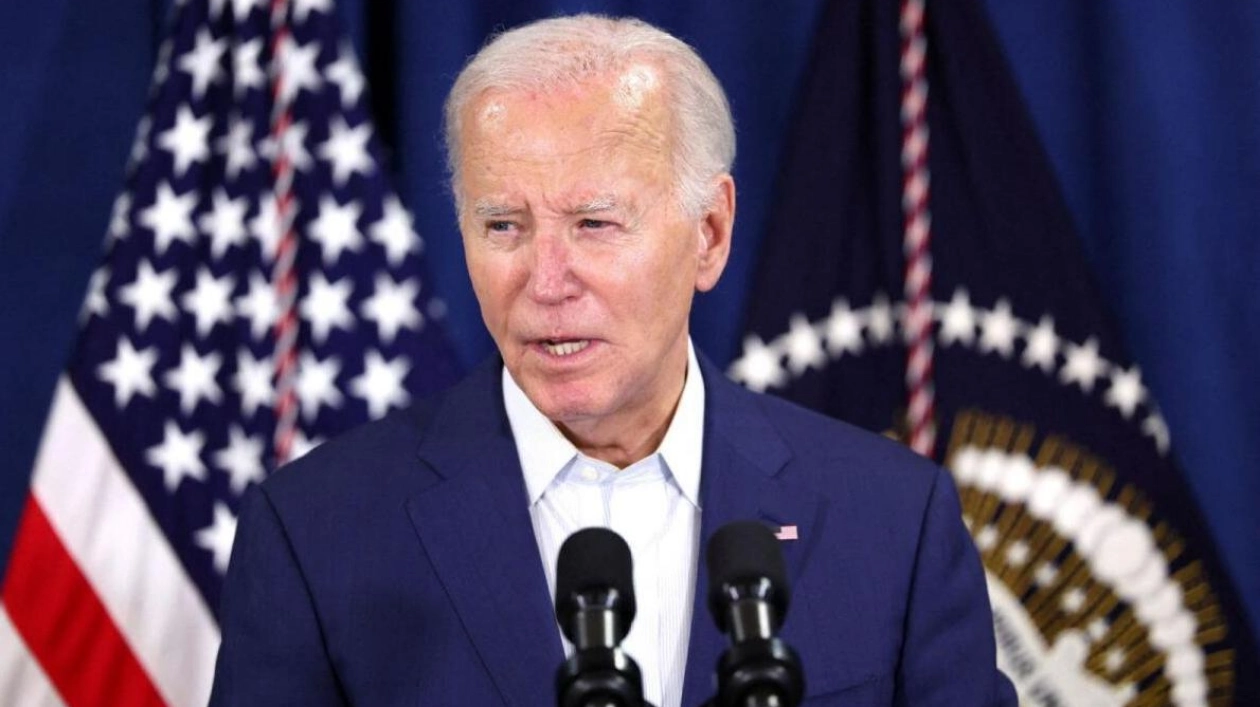As Joe Biden's verbal gaffes, shaky voice, and other concerning signs intensify scrutiny on the US president's mental sharpness, health experts are urging both Biden and his rival, Donald Trump, to undergo additional cognitive assessments, while cautioning against hasty judgments. These evaluations, experts note, could either dispel doubts about the 81-year-old president's mental decline or substantiate them, and could also shed light on Trump's cognitive capabilities, given his own history of verbal miscues. However, they warn that definitive diagnoses cannot be made without direct examination.
Since Biden's lackluster performance in his recent debate with Trump, the Democratic campaign has encountered strong resistance. Increasingly, members of his own party are质疑ing his capacity to govern for another four years. Adding to his woes, Biden mistakenly introduced Ukrainian President Volodymyr Zelensky as his adversary Vladimir Putin at a recent Washington summit, quickly correcting himself. Dennis Selkoe, a neurologist at Harvard Medical School, highlighted the critical question of whether Biden is experiencing normal aging processes or a neurological disorder. He emphasized that a name mix-up does not necessarily indicate dementia or Alzheimer's.
Selkoe, who treats many patients with neurodegenerative conditions, observed that Biden exhibits traits reminiscent of an early Parkinson's patient, including a slow, rigid gait and a soft, sometimes inaudible voice, possibly indicative of hypophonia. In February, Biden underwent a comprehensive physical examination, the results of which, published in a summary, ruled out Parkinson's after an 'extremely detailed neurologic exam.' However, specifics about the tests and their outcomes were not disclosed. Could a neurological condition have developed in the five months since? If the February exams were thorough, Selkoe suggested, early indicators of a developing issue should have been evident.
In a March editorial, the Lancet called for standardized health examinations for incumbent and potential presidents to shield American voters from a 'pestilence of speculation, misinformation, and slander.' Without such reliable testing, the public remains reliant on reports voluntarily released by politicians' personal physicians. Jay Olshansky, an aging expert at the University of Illinois at Chicago, echoed this sentiment, advocating for full transparency. He encouraged both presidential candidates to take a cognitive test, a challenge former President Trump has often posed to Biden.
Several cognitive tests, including the MMSE and MoCA, are available for initial screening or as part of a broader assessment. Biden has claimed that his daily presidential duties effectively serve as a cognitive test. However, Selkoe disagreed, noting that performing familiar tasks is distinct from recalling a list of words heard minutes earlier, a task required in some tests. At a recent press conference, Biden expressed willingness to undergo a new neurological exam if advised by his doctors, though none have suggested it currently.
Aging alters the brain, according to Allison Sekuler, president of the Baycrest Academy, a facility specializing in elderly care. She explained that 'garbage' accumulates in the brain, and parts crucial for memory atrophy. An early stage known as 'mild cognitive impairment' can sometimes progress to Alzheimer's or another form of dementia. During their recent debate, both Biden and Trump, aged 78, showed difficulties in maintaining focus on questions, prompting Sekuler to recommend testing for both. However, she noted that public discussion currently centers on only one candidate, aligning with societal stereotypes about aging.
Olshansky criticized what he termed 'raging' ageism, pointing to a recent magazine cover symbolizing the Biden-Trump contest with a walker. He highlighted that while there is a minimum age requirement for US presidents—they must be at least 35—there is no maximum limit. He described 'crystallized intelligence,' the ability to leverage past experiences for better reasoning, as improving with age. Olshansky co-authored a 2020 study predicting Biden had a 95% chance of surviving his first term based on average life expectancy and personal risk factors. However, a similar projection four years later, considering Biden's increased age, reduced his survival probability to 75%.






